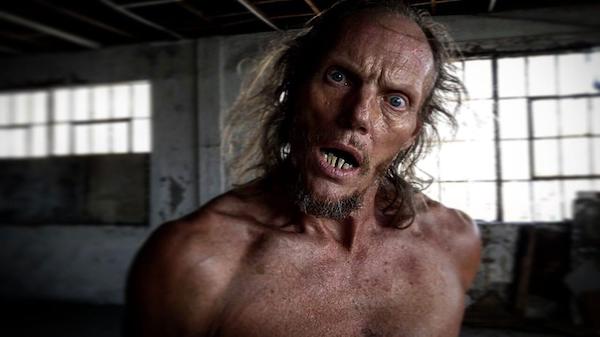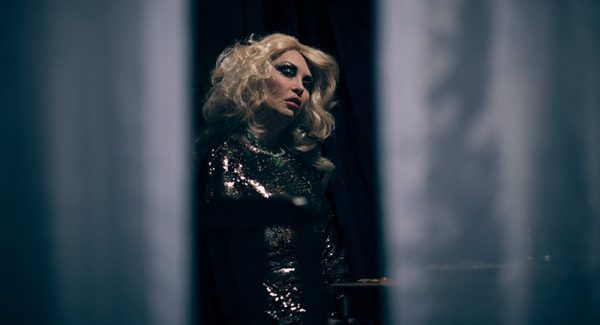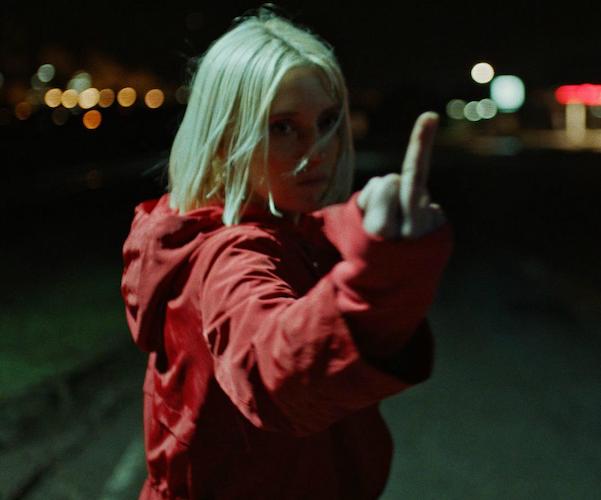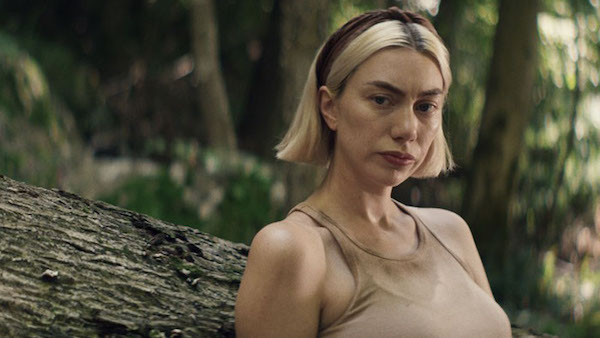Film Review: At the Fantasia International Film Festival, Part Two
By Isaac Feldberg
Movies, great or awful, are essential comforts in these nightmarish times. And in my second dispatch of the Fantasia fest, I bring better tidings.
I started off my first year at the Fantasia International Festival in high spirits and found them unexpectedly dampened after the first few days – both, I think, by the decidedly mixed lot of films I’d eagerly plowed through and by the disorienting (though still of course welcomed) feeling of experiencing virtually what has long been a riotously, righteously communal rite of passage for any self-respecting genre aficionados in North America. Missing is the gleefully self-imposed adrenaline rush of hurrying from theater to theater, eatery to eatery, bar to bar, taking in the absolute most of what Quebec has to offer.
Missing, too, is that festival buzz. It’s necessary, the restless and sometimes ecstatic chatter of attendees exhorting the smaller premiere that’s turned into a runaway favorite; or grimacing through an explanation of one they already wish they’d walked out, it so disappointed; or – everyone’s favorite – discussing furtively whatever that just was, that implacably bizarre hunk of movie that a few years down the road they’ll recognize has changed their life. Without it, Fantasia’s not fully Fantasia. Immense credit is due to its intrepid organizers and exceptional publicists for still bringing the heat in every other way possible, supplying a clean and highly functional layout for its virtual slate this year, delivering some spectacular seminars and showcases, with truly ace programmers at the wheel.
But the movies are still the movies: great or awful, and essential comforts in these nightmarish times. And in my second dispatch of the fest (of three, with a final one coming Wednesday, September 2), I bring better tidings.

Barry (Gary Green) would be mostly harmless, a bug-eyed observer, if people didn’t keep trying to have sex with him in Fried Barry.
What do you say about a movie as giddily, anarchically itself as Fried Barry, the feature debut – or “thing,” as he dubs it in the opening credits – of South Africa’s Ryan Kruger? First, that it’s great, the kind of full-throttle midnight-movie madhouse that embraces its subgenre with purpose. This thing sings its bonkers little heart out so earnestly that not speaking its made-up language won’t make a lick of difference. And it is a made-up language, to be clear, more specifically one not of this earth. Fried Barry opens as a heroin addict named Barry (Gary Green) is abducted by aliens and returned – after a disgusting examination, naturally – as a vessel: properly body-snatched, cracked open, inhabited. Barry doesn’t seem to be after anything. As in Rolf de Heer’s acerbic Bad Boy Bubby, this alien wanders around an epically grotty, bombed-out cityscape that only puts him in contact with depravity because his face gets shoved in it by everyone he meets. The assemblage of low lives includes human traffickers, sex workers, and a drug dealer. Barry gulps down that last one’s entire stash, making Fried Barry even more of a fluid-drenched trip. Barry would be mostly harmless, a bug-eyed observer, if people didn’t keep trying to have sex with him. But every time it might succumb to exploitation’s worst impulses, becoming pointlessly cruel or crass, Kruger side-steps.
Fried Barry has the full-body weirdness of Under the Skin as made by Jim Hosking. It’s Starman crossed with Street Trash, and dosed with MDMA for good measure. The film is almost off-puttingly funny at times, and gross in weirdly sweet ways. An early monologue digging into why Mickey Mouse wears gloves is Tarantino-esque dialogue that doesn’t feel derivative because it’s legitimately snappy and compelling; ditto for Natural Born Killers-inspired rear-screen projection, which only takes you out of the film in the way Kruger intends. Fried Barry is an open manhole of genre excess that many unsuspecting moviegoers will fall down, the best of them gratefully.

A stoned and sensual scene from Climate of the Hunter.
Even more surreal and thrilling in how it honors other eras of forbidden-fruit filmmaking – ‘70s psychodrama, acid-soaked hippie exploitation, eroticized dramas of vampires ready to sink their fangs into women who’ll let them – Mickey Reece’s stoned, sensual Climate of the Hunter is first and foremost a triumph of aesthetics. Sumptuously filmed, with such a weathered grain to it that I’d believe it was recovered from a dusty film canister, Climate commits to not only the look of the subgenres it’s channeling but their amplified emotions, their sense of inner vibration. It follows two sisters, Alma (Ginger Gilmartin) and Elizabeth (Mary Buss), who reconvene at a family cabin for dinner with silver-tongued acquaintance Wesley (Ben Hall), whom they haven’t seen in 20 years. Immediately, they compete for his affections, which Wesley slyly encourages over decadent meals (red wine and jello salad, anyone?) that Reece has prepared for our tactile, psychosomatic engagement. It rewards initially with the suggestion Wesley might be a vampire, and the equally tantalizing suggestion at least one of the sisters might not care so much if he was. After the arrival of Alma’s suspicious daughter (Danielle Evon Ploeger), veins of melancholy and existential dread grow visible before transforming the topography of the film altogether. The resulting swirls of astral psychedelia and pockets of fiendish humor make this an indulgent course for any arthouse connoisseurs in the crowd.
When Climate is debated among critics, it won’t take long for one to invoke Douglas Sirk’s dazzling melodramas, or Ingmar Bergman’s cloistered chamber dramas. Psycho-biddy thrillers by Robert Aldrich and Curtis Harrington also hang heavy. In some quarters, Reece has been nicknamed the “Soderbergh of the Sticks,” a reference both to the Oklahoma City auteur’s prolific output and the trademark versatility of his 29 films, made for pennies and cast with locally based performers (to the degree he describes his career as having “worked his way up from making bad homemade movies to less bad homemade movies.”) Both he and Soderbergh thrive at the intersection of cinematic artistry and restless innovation; neither entertain preconceived notions of what their films should look like. The centrifugal energy of Climate of the Hunter is something to behold; with its tricky meditations on aging, hallucinogenic dream sequences, and lurid poker games, this is a film destined to break free of its moorings. That it only does so in the third act, exactly when it should, is a testament to Reece’s patience and ability.
Ben Hozie’s PVT CHAT is either the luckiest or the smartest film at Fantasia, given its prescient casting of a then-unknown Julia Fox – who’s since Uncut Gems arrived as the viral sex symbol of our times – as Scarlet, a cam girl caught in a dubious, mutually deceitful courtship with gambling addict Jack (Peter Vack). The film reflects what has become the panoptic hellscape of life online, and it’s advertised bleakly as a romance. Every relationship in PVT CHAT is directly transactional, predicated on lies that scratch the deeper emotional needs of all involved. These characters subsist on dishonest endorphin rushes: validations validations paid for, and fantasies concocted, in real time. Fox knows the terrain; she was discovered by Gems directors Josh and Benny Safdie on New York’s downtown scene, where she’d worked previously as a dominatrix. As Scarlet, she’s coy and fully in control, terrific at suggesting restrained humanity and burning desire without letting slip the masks she’s wearing. You’re reminded, watching Fox, about acting as a survival tactic. As in Uncut Gems, with which PVT CHAT overlaps plenty given their mutually scuzzy New York playground, Fox is playing a born hustler, a force of nature, impossibly captivating and cleverest when her back’s against the wall. She wasn’t born this way. The world has a way of hardening your armor, though, and she knows how to go on the offensive.
The film is unsettled, recalling Eyes Wide Shut and Lost in Translation as much as Unfriended: Dark Web. It’s horrifyingly truthful as erotica: a love story of a modern, doomed persuasion. What it’s after, I think, is envisioning the Internet as a delivery system for cheap thrills, where emotions are flattened and dulled. Sex, too, is reduced and commodified, nothing but ones and zeroes. Accidental intimacy, confession, a stray moment where the masks slip and someone smiles imperfectly, especially when they don’t know they’re being watched — that’s what really gets us off. Visually, Hozie banks on voyeuristic framings, off-kilter angles, and shifting depths of field to suggest a world in which everything’s close at hand yet impossibly intangible, a wisp of pixels and projected desire even once made physical. They’re outmoded now, but desktop screensavers were originally safeguards to prevent phosphor burn-in; those ghost images always seemed to me like shadows cast by whatever lurks on the other side of the monitor. PVT CHAT flickers at times to reveal a monster in the machine. Modern loneliness is a trap we built for ourselves, and this is the love story our captivity deserves: ghastly, touching, devastated.

Eve (Lucie Debay) is a red riding hood pursued through a dark wood in Hunted — primeval resonance?
The closest corollaries to Vincent Paronnaud’s adequate Hunted are Coralie Fargeat’s Revenge (a modern masterpiece that could gut Hunted like a trout) and Shana Feste’s upcoming Run Sweetheart Run (a messier exercise that got that way by taking big swings). All in the rape-and-revenge subgenre, they begin when young women lower their guard to men in their company and are reminded how dangerous it is to place their trust in any man, let alone a stranger. Betrayed, isolated, pursued through inhospitable landscapes, these heroines summon innermost courage and strength, confronting their attackers in order to survive. It’s a mythological story, this one, and I don’t imagine we’ll ever stop telling it, the phoenix rising from the ashes, not a burial but a resurrection. Paronnaud visually depicts Eve (Lucie Debay) as a red riding hood pursued through a dark wood by hungry wolves (one coolly evil, played by Arieh Worthalter; the other a sycophantic accomplice, played by Ciaran O’Brien). The director seeks a primeval resonance.
Eve’s flight is flushed, frantic. The film throbs with the sound of blood rushing in her ears. Worthalter’s unnamed Man makes movies of his own, snuff films he justifies as art by imposing fictional narratives onto the violence he’s about to perpetrate. Much is made of campfires and stories we tell around them. It’s important to get this particular story right. It matters who we hear it from. What’s good about Hunted is that it knows the right things to say. Where it loses me is that, instead of reaching into Eve, it recasts her as a symbolic figure: child of trauma, spirit of vengeance. In doing so, the film limits itself to a retelling, lined with metaphorical flourishes that enchant but do little subverting. It strikes me more often as an issue of discomfort than dissonance when male filmmakers keep female characters at a psychological distance while telling stories that demand their exposure on elemental levels. In her moment of triumph, Eve sprints through the forest, eyes wild and teeth bared; she’s shot head-on, charging at the camera. Paronnaud cannot run alongside her. He’s in her way.

Femke (Katja Herbers) on the rampage in a scene from The Columnist.
Ivo van Aart’s rank, one-note The Columnist is similarly mystified by the woman at its center – a fatal flaw, it turns out, for a cautionary tale about cyberbullying that hinges on us backing said woman’s heel-turn from besieged op-ed columnist to merciless revenger. Femke (Katja Herbers) can’t stop doom-scrolling online; while she’s Googling she discovers one of her trolls lives next door. One thing leads to another, and she abruptly pushes him off a ladder, restyling herself as a Death Wish-style vigilante and setting out to violently murder the rest of the haters.
Instead of castrating her victims, in line with the subgenre’s conventional reversals, Femke collects a finger, stowing them in a box of frozen peas, maybe because the filmmaker is making a point about how trolls prize those digits and the digital intrusions they assist — or maybe just because she’s sick. (But it’s really because Femke’s dim-witted boyfriend and daughter need to be clued in at some point, and no one thought that part through.) Because of the kind of movie this is, Femke’s rampage makes her skin glow and her wardrobe chic. It also cures her writer’s block; if she were a high schooler, the violence would clear up her acne and help her win the quarterback’s heart. The Columnist is essentially execrable stuff, as shrill and generalized as Jason Reitman’s Men, Women & Children and other such after-school specials, though it’s not hysterical in a Terrible Truth way. It just sits there, seething, worse than the commentariat it hates because it doesn’t see itself as one of them.

A scene from Lapsis, a vaguely futuristic drama, pro-worker and anti-gig economy.
A better TV pilot than it is a movie, Noah Hutton’s feature debut Lapsis reminded me in spurts of Alex Garland’s humanist sci-fi and the Northwest rurality at the heart of something like Chris Caldwell’s Prospect. Set in a slightly altered sci-fi present, the plot introduces a new encryption technology, quantum, that has sent markets soaring and corporate suits very rich. With this tech has arrived new opportunities to exploit workers: quantum can’t do its thing without physical cables that must be manually connected to “quantum boxes.”
When working-class Ray (Dean Imperial) takes such a gig, he’s clued into its dark underbelly by mysterious fellow cabler (Madeline Wise). Really, this is only vaguely futuristic drama; it is more keen to explore the David-versus-Goliath battles of labor organizing in the shadow of a monopoly. These schematic pro-worker, anti-gig-economy messages become much more resonant when embedded in the organic-to-character critiques found in Ken Loach’s slice-of-life tragedies; Hutton keeps his film humming along at a surface level, never seeking that emotional heft. At times, Lapsis even skirts the didacticism of Boots Riley’s Sorry to Bother You, without any of that film’s bonkers trappings. This is all minorly interesting, but Lapsis ends where a much more interesting third act would have started.
Isaac Feldberg is an entertainment journalist currently based in Boston. Though often preoccupied by his on-going quest to prove that Baby Driver is a Drive prequel, he always finds time to appreciate the finer things in life, like Michael Shannon.
Tagged: Ben Hozie, Climate of the Hunter, Fantasia 2020, Fried Barry, Hunted, Isaac Feldberg, Ivo van Aart, Lapsis, Mickey Reece, Noah Hutton, PVT CHAT, Ryan Kruger, The Columnist
